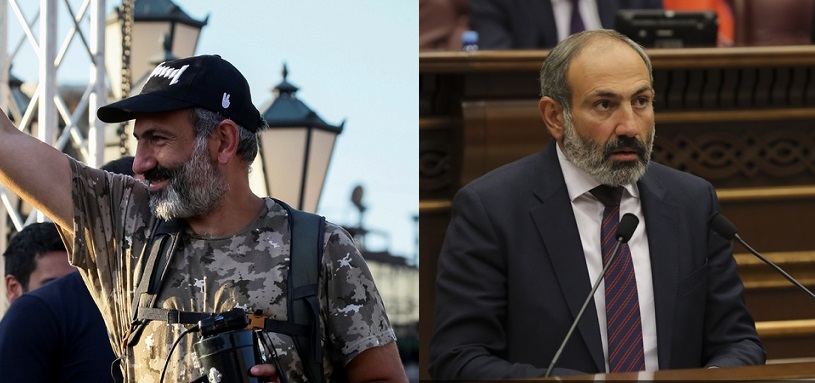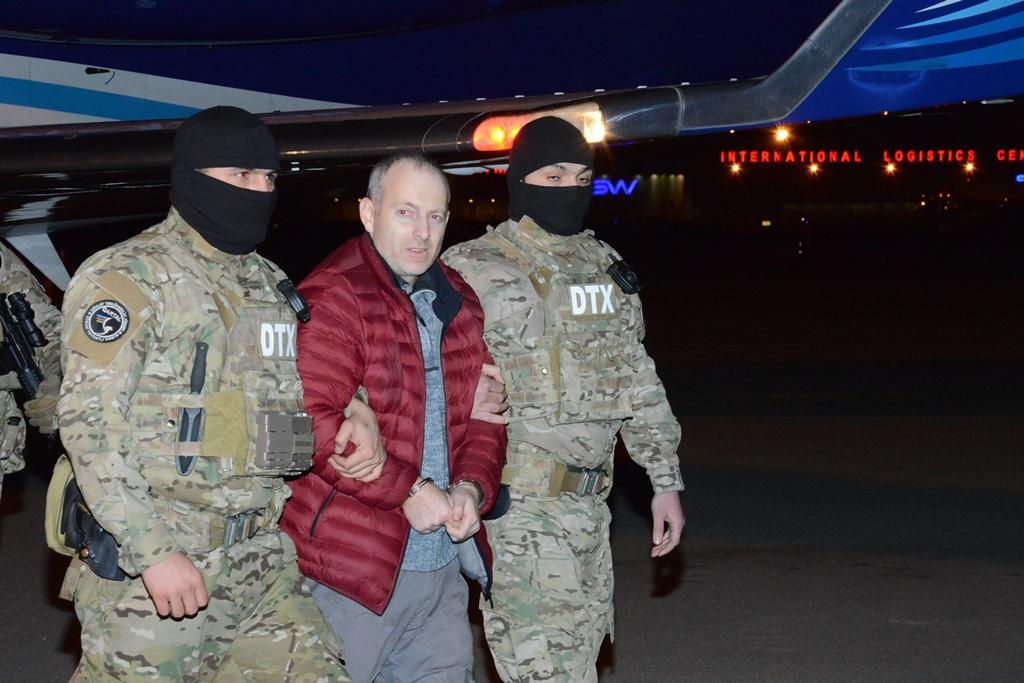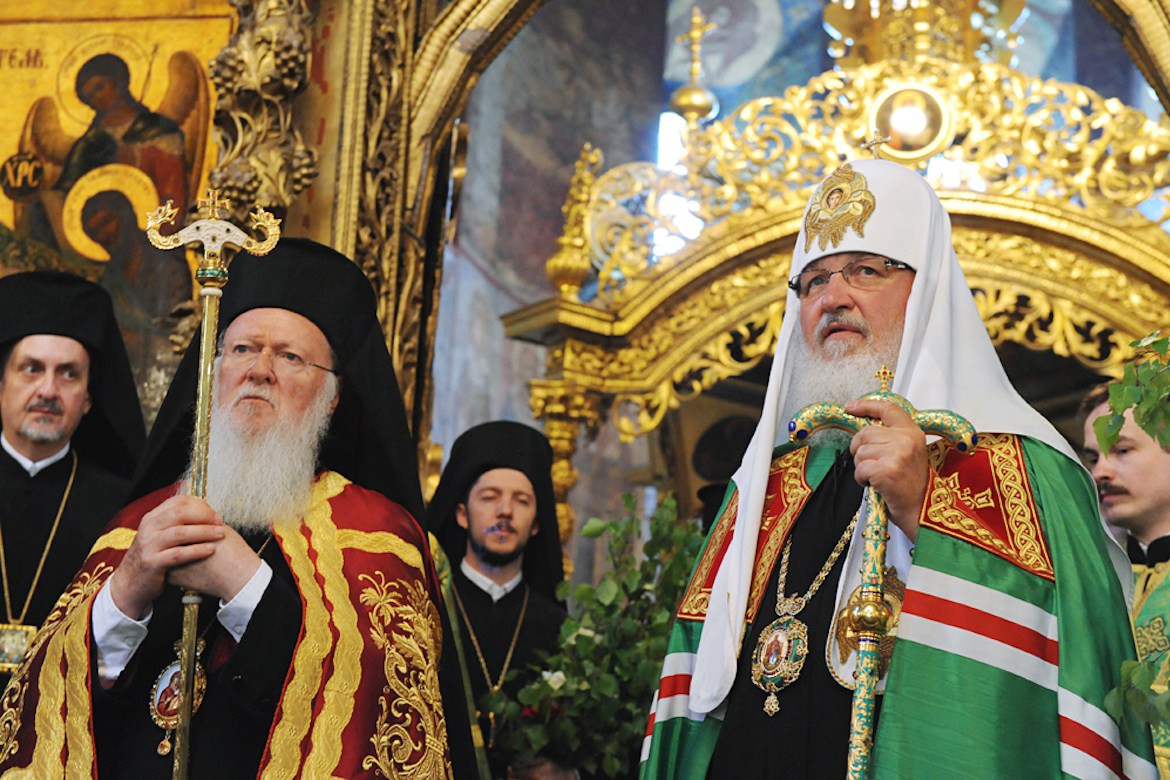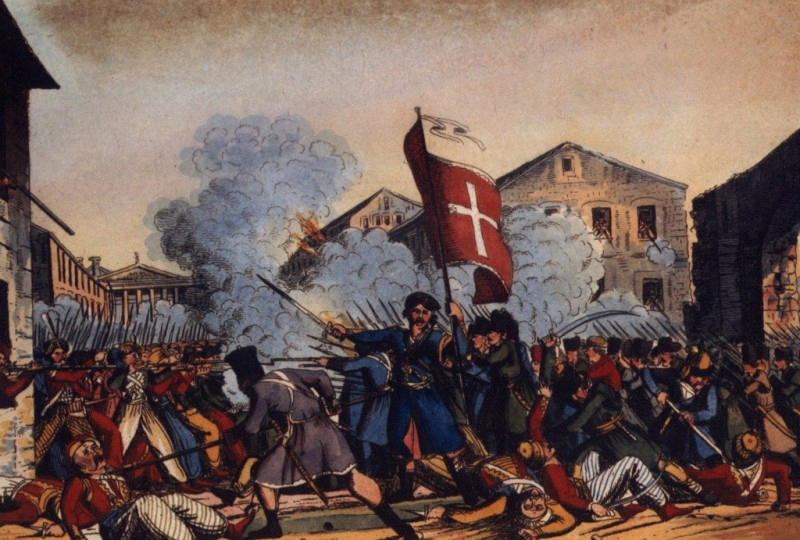
On 16 June 2015, the ECHR Grand Chamber declared its judgement on the cases of Chiragov and Others v. Armenia and Sargsyan v. Azerbaijan. Both cases are about the refugees and displaced persons, and the violation of their rights to access their possessions left behind in the territory controlled by Armenia and Azerbaijan, respectively, as a consequence of the Nagorno-Karabakh conflict.
In fact, refugees and internally displaced persons (IDPs) are one of the aspects of the Nagorno-Karabakh conflict that await to be resolved. The judgements of the ECHR Grand Chamber, therefore, bear significance for the future course and the final resolution of the conflict. Besides that, the merits of the ECHR Grand Chamber’s judgement on the case of Chiragov and Others v. Armenia contain consequential statements that confirm Azerbaijan and Armenia as the parties of the conflict, notwithstanding the Armenian claim that the conflict is between the de facto Nagorno-Karabakh Republic (NKR) and Azerbaijan.
In fact, the issue of the determination of the parties of the conflict is more than a secondary concern. Rather, this issue is very much relevant to the determination of the nature of the conflict, which would, in return, determine its legitimate and lawful resolution.
The Nagorno-Karabakh Conflict
One of the legacies of the Soviet Union is the ethnic conflicts in the post-Soviet space that erupted in the course of the collapse of the Soviet Bloc. Regrettably, the post-Soviet space still engenders additional conflicts, as the recent Ukrainian crisis demonstrates.
The conflict between Armenia and Azerbaijan over Nagorno-Karabakh is one of the unresolved post-Soviet conflicts, which some refer to as a frozen conflict, despite occasional skirmishes on the line of contact between the Armenian and the Azerbaijani forces. These skirmishes sometimes turn into relatively large-scale clashes. Many experts express their concerns of the possibility of rapid transformation of the encounters into warfare. The downing of the Armenian Mi-24 military helicopter that reportedly violated the Azerbaijani airspace during military exercises on 12 November 2014 is one of the latest examples that reveals the delicate situation in the region.
The conflicting arguments of Armenia and Azerbaijan with respect to the Nagorno-Karabakh conflict can be summarized as follows: Armenia argues that the Nagorno-Karabakh Conflict is about the national liberation of the Karabakh Armenians from the Azeri domination. Karabakh Armenians, using their right of self-determination, chose to have their own independent state and fought a war of liberation against Azerbaijan. Nagorno-Karabakh and the seven surrounding regions[1] are the territories of the NKR that gained independence from Azerbaijan by during the Karabakh War. According to the Armenian position, Republic of Armenia is not a direct party of the conflict between NKR and Azerbaijan. In reference to the international principle of self-determination, the independent statehood of the NKR is legitimate and lawful.
Azerbaijan, on the other hand, holds that NKR is not an independent or autonomous actor and the conflict over Nagorno-Karabakh is between Azerbaijan and Armenia. One-fifth of the internationally recognized territory of Azerbaijan is under the occupation of Armenia. The Armenian occupation of the Azerbaijani territory is a violation of the international principle of the territorial integrity of the states. Armenia is obliged to end the occupation.
No state recognizes the de facto authority in the NKR as an independent state. It is also for this reason, in addition to nullify Azerbaijan’s argument of Armenia’s occupation, that Armenia insists that Republic of Armenia and NKR are two different states and NKR must be admitted to the peace negotiations as a separate party. What lies behind this insistence is also the idea of pushing for the de facto and then de jure recognition of the unrecognized de facto authority in the NKR by the international community. Against that, Azerbaijan rejects the inclusion of the NKR in the peace negotiations.
The Case of Chiragov and Others v. Armenia and the Judgment of the ECHR Grand Chamber
On 6 April 2005, six Azerbaijani nationals brought a case against Armenia. In their appeal, the applicants claim that in 1992 during the Nagorno-Karabakh war, they were forced to leave the district of Lachin in Azerbaijan by Armenian forces and since then they have been unable to return to their homes and have been denied control over their properties. Accordingly, the applicants assert that Armenia violates Article 1 of Protocol No. 1 (protection of property), [2] Article 8 (right to respect for home and private and family life),[3] Article 13 (right to an effective remedy)[4] and Article 14 (prohibition of discrimination) of the European Convention on Human Rights.[5]
Armenia objected to the opening of the case by arguing that “the application fell outside the Court’s temporal jurisdiction.” However, the ECHR Grand Chamber considered the case “a continuing situation which the Court could examine as from 26 April 2002, the date on which Armenia had ratified the [European Convention on Human Rights].”
Eventually, the ECHR Grand Chamber (the Court) rejected Armenia’s objection that “the applicants had failed to exhaust the legal remedies at national level.” The Court approved the victim status of the applicants for having been forced to leave their homes and having lost control over their possessions, i.e. houses and land, in Lachin without a legal remedy, compensation for or physical access to the lost possessions. The Court also affirmed that the return of the Azerbaijanis to Nagorno-Karabakh is not an option in practical terms.
Upon these determinations, the Court judged that Armenia violated the Article 1 of Protocol No. 1, Article 8 and Article 13 of the European Convention of Human Rights. The Court decided that there was no need to examine applicants’ claim of having been subjected to discrimination by Armenia on the basis of ethnic and religious affiliation, within the meaning of Article 14 of the Convention.
The applicants claimed a total compensation for pecuniary and non-pecuniary damages that amounts up to 8,200,000 euros. The Court invited Armenia and the applicants to negotiate to reach an agreement on the matter of compensation within a year after the date of notification of the judgement.
The Military and Political Situation that the ECHR Grand Chamber Judgment Confirms
Of crucial significance, the defendant of the case is the Republic of Armenia. In political terms, this is as consequential as the judgement of the Court itself, if not more. The Court referring to previous reports, speeches and documents determined that Armenia has an “effective control” over Nagorno-Karabakh and the surrounding regions, and NKR is not an independent or autonomous authority. The Court judged that the military involvement, and the political and economic support of Armenia to the de facto authority of NKR demonstrates Armenia’s role in the conflict zone. In sum, the Court decided that:
"All of the above reveals that the Republic of Armenia, from the early days of the Nagorno-Karabakh conflict, has had a significant and decisive influence over the “NKR”, that the two entities are highly integrated in virtually all important matters and that this situation persists to this day. In other words, the “NKR” and its administration survives by virtue of the military, political, financial and other support given to it by Armenia which, consequently, exercises effective control over Nagorno-Karabakh and the surrounding territories, including the district of Lachin."
Therefore, The Court stated:
"The Government’s objection concerning the jurisdiction of the Republic of Armenia over Nagorno-Karabakh and the surrounding territories is therefore dismissed."
As such, the Court’s judgement establishes that the Republic of Armenia, not the NKR, is the party of the conflict.
The Likely Consequences of the ECHR Grand Chamber Judgment
Following the judgment of the Court, Armenia’s Foreign Minister Edward Nalbandian said that negotiations over Nagorno-Karabakh are conducted by the Co-Chairmanship of the OSCE Minsk Group, not by the ECHR. He stated that the decision “is an individual court case which cannot have implication on the Nagorno-Karabakh conflict settlement process” and added that “the manipulation of this case by Azerbaijan can only harm the efforts aimed at the peaceful settlement”.[6]
Minister Nalbandian’s statement of reveals the discomfort of the Armenian side with the ECHR Grand Chamber judgment. The reasons of the discomfort of the Armenian side can be explained as follows:
First, The ECHR Grand Chamber obliges Armenia to pay compensation to six applicants that may amount up to 8,200,000 euros. Importantly, this is the very first case and around a thousand cases are pending against both Armenia and Azerbaijan. Certainly, the case of Chiragov and others v. Armenia will a precedent of the future cases and compensation issue will be a big burden for the small Armenian economy, when the pending cases are finalized.
As to that point, although some Armenian commentators says ECHR Grand Chamber’s decisions cannot be binding until the conflict is resolved,[7] the merits of the judgement clearly foresees the implementation of the judgment after a year of negotiations on the amount of compensation between the applicants and Armenia.
Secondly, the judgment of the ECHR Grand Chamber imposes the resolution of the issues related to refugees and IDPs as soon as possible without waiting the final resolution of the conflict, as an integral part of the conflict resolution process. This is also the view of Azerbaijan. On the other hand, Armenia insists that this issue shall be resolved after the comprehensive resolution. Moreover, it is known that Armenia categorically rejects the possibility of the return of the Azerbaijani refugees and IDPs to their homes in the territories under the Armenian control. As such, the Court judgment is a blow to the Armenian position.
With respect to the question of return of the refugees and IDPs to their homes, one must note that recently Armenia has been settling the Armenian refuges from Syria and Iraq to Nagorno-Karabakh. This settlement policy, in fact, spreads the seeds of future conflicts that Armenia is likely to find itself trapped in.
The Collapse of the Self-Determination Thesis?
As said above, whereas Azerbaijan stresses the principle of territorial integrity, the Armenian side underlines the principle of self-determination as the basis of the conflict over Nagorno-Karabakh, despite the fact that self-determination thesis does not explain the occupation of the seven Azerbaijani regions around Nagorno-Karabakh.
The merits of the judgment of the ECHR Grand Chamber by once again confirming the “effective control” of Armenia on Nagorno-Karabakh and the surrounding regions invalidates Armenian side’s claim of the “national liberation of the Karabakh Armenians”. As to this point, the merits of the judgment states:
"Article 42 of the Regulations concerning the Laws and Customs of War on Land, The Hague, 18 October 1907 (hereafter “the 1907 Hague Regulations”) defines belligerent occupation as follows:
“Territory is considered occupied when it is actually placed under the authority of the hostile army. The occupation extends only to the territory where such authority has been established and can be exercised.”
Accordingly, occupation within the meaning of the 1907 Hague Regulations exists when a state exercises actual authority over the territory, or part of the territory, of an enemy state. The requirement of actual authority is widely considered to be synonymous to that of effective control."
As such, the ECHR Grand Chamber confirms that the lands in question are ‘occupied’ rather than ‘liberated’, notwithstanding the Armenian discourse. International law does not outlaw a country to use force to liberate its territories occupied by another state.
Lessons for Third Parties
As in most of the other conflict situations, foreign powers seek to benefit from the situation in the South Caucasus. Aggravating the conflict through seemingly nice gestures to this or that party of the conflict is an accustomed tactic of the ‘imperialist powers’: offer a carrot for a carrot field in return. There have been many of such gestures with respect to the Nagorno-Karabakh conflict. Strikingly, this type of acts are also utilized by the co-chairs of the Minsk Group that is supposed to be the international body for the resolution of the Nagorno-Karabakh conflict.
The last example is the reception of ‘president’ of the NKR Bako Sahakyan by the National Assembly of France on 16 May 2015. Although, this reception was met with the protest of Azerbaijan that was followed by French ambassador to Azerbaijan Pascal Monnier’s statement that refuses the possibility of France’s recognition of the NKR some fifteen day later, it is still obvious that France and some others play a double game. These countries, however, must remember that providing implicit or explicit support to an occupant power has consequences according to the international law.
[2] “Every natural or legal person is entitled to the peaceful enjoyment of his possessions. No one shall be deprived of his possessions except in the public interest and subject to the conditions provided for by law and by the general principles of international law.
The preceding provisions shall not, however, in any way impair the right of a State to enforce such laws as it deems necessary to control the use of property in accordance with the general interest or to secure the payment of taxes or other contributions or penalties.”
[3] “Everyone has the right to respect for his private and family life, his home and his correspondence.
There shall be no interference by a public authority with the exercise of this right except such as is in accordance with the law and is necessary in a democratic society in the interests of national security, public safety or the economic well-being of the country, for the prevention of disorder or crime, for the protection of health or morals, or for the protection of the rights and freedoms of others.”
[4] “Everyone whose rights and freedoms as set forth in [the] Convention are violated shall have an effective remedy before a national authority notwithstanding that the violation has been committed by persons acting in an official capacity.”
[5] “The enjoyment of the rights and freedoms set forth in [the] Convention shall be secured without discrimination on any ground such as sex, race, colour, language, religion, political or other opinion, national or social origin, association with a national minority, property, birth or other status.”
© 2009-2025 Center for Eurasian Studies (AVİM) All Rights Reserved
No comments yet.
-
 THE JUDGEMENT OF THE EUROPEAN COURT OF HUMAN RIGHTS GRAND CHAMBER ON PERİNÇEK v. SWITZERLAND CASE in PERSPECTIVE - 2: THREE DISQUALIFIED ARGUMENTS AND “THE PREVENTION OF DISORDER”
THE JUDGEMENT OF THE EUROPEAN COURT OF HUMAN RIGHTS GRAND CHAMBER ON PERİNÇEK v. SWITZERLAND CASE in PERSPECTIVE - 2: THREE DISQUALIFIED ARGUMENTS AND “THE PREVENTION OF DISORDER”
Turgut Kerem TUNCEL 23.10.2015 -
 AN ANALYSIS OF THE POLITICS IN ARMENIA AFTER THE “VELVET REVOLUTION”
AN ANALYSIS OF THE POLITICS IN ARMENIA AFTER THE “VELVET REVOLUTION”
Turgut Kerem TUNCEL 01.06.2018 -
 THE NAGORNO-KARABAKH ISSUE FROM A JURIDICAL POINT OF VIEW: THE CASE OF CHIRAGOV AND OTHERS V. ARMENIA
THE NAGORNO-KARABAKH ISSUE FROM A JURIDICAL POINT OF VIEW: THE CASE OF CHIRAGOV AND OTHERS V. ARMENIA
Turgut Kerem TUNCEL 26.06.2015 -
 BECOMING THE PART OF THE PROBLEM: THE FAULTY POLICIES OF THE WEST IN EURASIA AND THE SOUTH CAUCASUS
BECOMING THE PART OF THE PROBLEM: THE FAULTY POLICIES OF THE WEST IN EURASIA AND THE SOUTH CAUCASUS
Turgut Kerem TUNCEL 11.08.2015 -
 COMMENTS ON "THE PAN-ARMENIAN DECLARATION ON THE 100th ANNIVERSARY OF THE ARMENIAN GENOCIDE"
COMMENTS ON "THE PAN-ARMENIAN DECLARATION ON THE 100th ANNIVERSARY OF THE ARMENIAN GENOCIDE"
Turgut Kerem TUNCEL 26.03.2015
-
 ALEXANDER LAPSHIN’S EXTRADITION TO AZERBAIJAN: A NEW EPISODE IN KARABAKH DISPUTE
ALEXANDER LAPSHIN’S EXTRADITION TO AZERBAIJAN: A NEW EPISODE IN KARABAKH DISPUTE
Turgut Kerem TUNCEL 21.02.2017 -
 IS ECUMENISM BEING DISRUPTED IN THE CHRISTIAN WORLD?
IS ECUMENISM BEING DISRUPTED IN THE CHRISTIAN WORLD?
Mehmet Oğuzhan TULUN 24.09.2018 -
 GREECE: 1821 CELEBRATIONS, TRIPOLITSA MASSACRE, BBC AND FAKE NEWS
GREECE: 1821 CELEBRATIONS, TRIPOLITSA MASSACRE, BBC AND FAKE NEWS
Teoman Ertuğrul TULUN 31.03.2021 -
 CONSTRUCTIVE EURASIANISM IN THE EASTERN MEDITERRANEAN: TÜRKİYE’S ROLE IN BALANCING COOPERATION, SOVEREIGNTY, AND REGIONAL STABILITY
CONSTRUCTIVE EURASIANISM IN THE EASTERN MEDITERRANEAN: TÜRKİYE’S ROLE IN BALANCING COOPERATION, SOVEREIGNTY, AND REGIONAL STABILITY
Teoman Ertuğrul TULUN 28.03.2025 -
 GREECE ATTEMPTS TO FORGE ANOTHER FRONT AGAINST TÜRKİYE WITH A PONTIC NARATIVE
GREECE ATTEMPTS TO FORGE ANOTHER FRONT AGAINST TÜRKİYE WITH A PONTIC NARATIVE
Teoman Ertuğrul TULUN 01.07.2025
-
25.01.2016
THE ARMENIAN QUESTION - BASIC KNOWLEDGE AND DOCUMENTATION -
12.06.2024
THE TRUTH WILL OUT -
27.03.2023
RADİKAL ERMENİ UNSURLARCA GERÇEKLEŞTİRİLEN MEZALİMLER VE VANDALİZM -
17.03.2023
PATRIOTISM PERVERTED -
23.02.2023
MEN ARE LIKE THAT -
03.02.2023
BAKÜ-TİFLİS-CEYHAN BORU HATTININ YAŞANAN TARİHİ -
16.12.2022
INTERNATIONAL SCHOLARS ON THE EVENTS OF 1915 -
07.12.2022
FAKE PHOTOS AND THE ARMENIAN PROPAGANDA -
07.12.2022
ERMENİ PROPAGANDASI VE SAHTE RESİMLER -
01.01.2022
A Letter From Japan - Strategically Mum: The Silence of the Armenians -
01.01.2022
Japonya'dan Bir Mektup - Stratejik Suskunluk: Ermenilerin Sessizliği -
03.06.2020
Anastas Mikoyan: Confessions of an Armenian Bolshevik -
08.04.2020
Sovyet Sonrası Ukrayna’da Devlet, Toplum ve Siyaset - Değişen Dinamikler, Dönüşen Kimlikler -
12.06.2018
Ermeni Sorunuyla İlgili İngiliz Belgeleri (1912-1923) - British Documents on Armenian Question (1912-1923) -
02.12.2016
Turkish-Russian Academics: A Historical Study on the Caucasus -
01.07.2016
Gürcistan'daki Müslüman Topluluklar: Azınlık Hakları, Kimlik, Siyaset -
10.03.2016
Armenian Diaspora: Diaspora, State and the Imagination of the Republic of Armenia -
24.01.2016
ERMENİ SORUNU - TEMEL BİLGİ VE BELGELER (2. BASKI)
-
AVİM Conference Hall 24.01.2023
CONFERENCE TITLED “HUNGARY’S PERSPECTIVES ON THE TURKIC WORLD"









